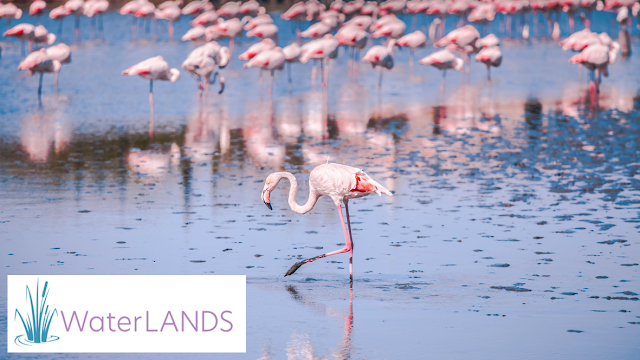%20Jorge%20Monje.jpeg)
FPU2023 Landscape-level effects of multi-species, plant-herbivore interactions in European Atlantic ecosystems
The research will be developed in the framework of the project Increasing the resilience of High Nature Value pastoral systems hosting wild and domestic ungulates RESILGRAZE, aimed at developing evidence-based, adaptive management strategies to optimize the balance between pastoral livestock farming, wildlife conservation, ecosystem services, and ecosystem resilience in Europe’s (Mediterranean- and temperate-climate) Atlantic ecosystems facing climate change. The project will obtain and analyze field, remote-sensing and animal movement data, with the aim of fostering the development of adaptive co-management programs in four iconic Natural Protected Areas within that region: Doñana National Park (SW Spain), Serra de Xistral (NW Spain), Lauwersmeer (Netherlands) and Cairngorms (UK).
The project will obtain and analyze field, remote-sensing and animal movement data, with the aim of fostering the development of adaptive co-management programs in four iconic Natural Protected Areas within that region: Doñana National Park (DNP), Serra de Xistral (SX), Lauwersmeer (LW) and Cairngorms (CG). Key ecosystem services targeted by the programs will include carbon storage, soil fertility, pasture production, water provision, prevention of forest fires – and, more generally, the conservation of biodiversity. RESILGRAZE will therefore use a transdisciplinary battery of approaches, methods and techniques to develop sustainable management practices that ensure the long-term conservation of the natural value of these (protected) areas.
The grantee will participate in the design, execution and analyses of field and remote-sensing surveys at the different sites (with a larger effort devoted to the two Spanish sites, DNP and SX), which may include: (i) vegetation composition, plant production and consumption, and C and N stocks; (ii) animal behaviour, movement and space use the analysis of images obtained with camera-traps and drones, combined with movement data obtained with GPS collars; and (iii) food selection, digestion efficiency and body condition by ungulates, using biochemical (cortisol) and barcoding analyses of faecal samples. Emphasis on these different aspects will be decided while designing the PhD work-plan, in the first trimester of the work period.
The research of the PhD student will be related to a broader assessment of the long-term effects of climate change on plant-herbivore dynamics and ecosystem function (e.g., carbon and nutrient dynamics, water storage and purification) at multiple-spatial scales, ranging from the individual to the landscape level and including the interplay between aquatic and terrestrial ecosystems. The project activities and results will represent a suitable departure point from which the PhD student will be able to add in-depth studies of the effects of ungulates on other elements of the (aquatic and terrestrial) ecosystems placed along the project’s broad latitudinal gradient, and the impact of climate change thereupon.
The student will benefit from the scientific excellence, interdisciplinarity and internationality of the research team in developing such topics, which are in the cutting edge of current research in ecology, biological conservation and climate change. He/she will be supervised by the two senior researchers of the research team, Luis Santamaría (EBD-CSIC). She/he will also receive the support of the three senior members of the research team (and
Following the requirements of mobility of the PhD program, the PhD student will be expected to attend a minimum of two top-quality international courses, such as those addressing animal movement ecology (e.g., Marx Plank’s AniMove, University of Amsterdam’s Animal Movement Analysis); and to make at least two international visits (e.g., at the aforementioned research centers of the two other senior researchers of the project). She/he will also benefit by the numerous support activities offered by EBD-CSIC, which include weekly seminars by first-line international researchers; the opportunity to receive annual supervision by an (international) steering committee; access to EBD’s and CSIC’s training activities, including the annual course in animal welfare; and several courses of high relevance for his/her research topic (e.g. remote sensing, GIS, UAVs, experimental design, statistical analyses, modelling).
See the web page of CSIC's training program for more details.

